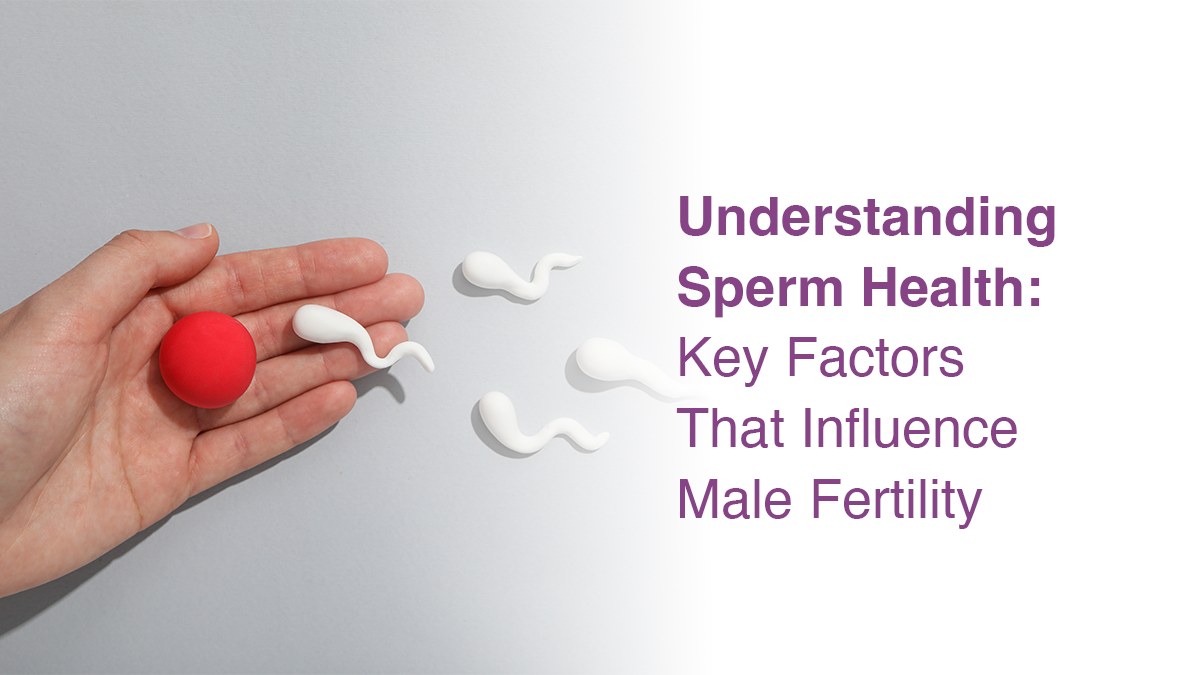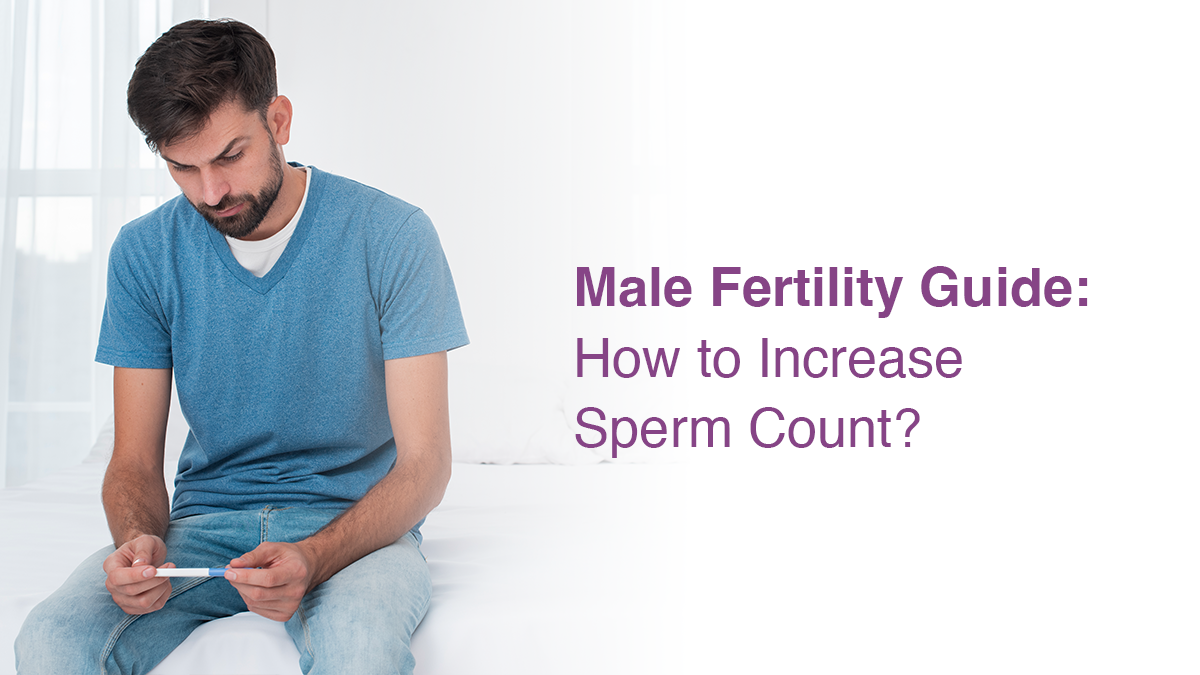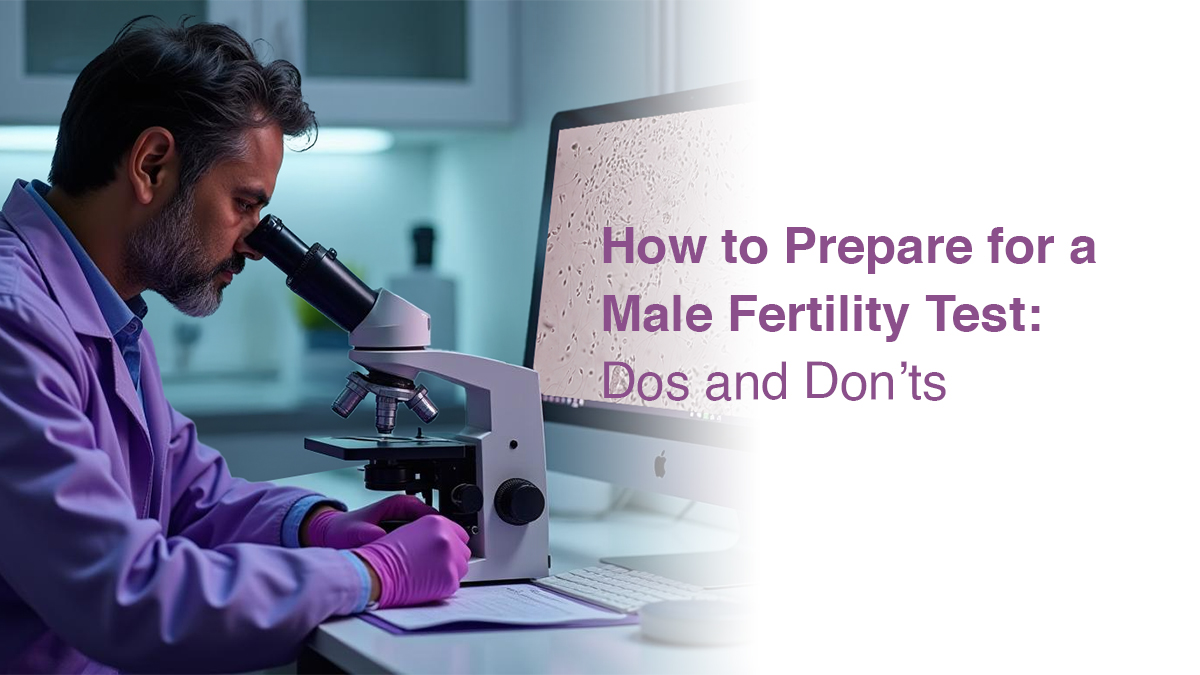
Male infertility – an overview

By the time you’re here, reading this, you would have been bombarded with scary bits of information that could create enough stress to cause infertility even if you aren’t. The issue here is that information such as 45 to 50% of all infertility cases are attributable to men[1] – or that approximately 7% of all men are infertile need to be viewed alongside the statistical perspective with which, they have been put forth. Here, we try to understand male infertility, causes, diagnosis and treatments at an empirical level before delving into each of them in detail.
Understanding infertility
Infertility in men can be diagnosed due to one or more of the following factors – however, the result of any one of these factors alone will not necessarily indicate infertility. It is a combination of almost all of these that are used for diagnosis:
- Low sperm count in the ejaculation – this could result in a lower probability of pregnancy due to fewer number of sperms.
- Low motility or moving capacity of the sperm – as the sperms do not survive long, low motility can result in their death before they reach the egg
- Abnormally low or high semen volume – while low sperm volume may imply a low sperm count, abnormally high sperm volume can also indicate diluted sperm, both of which reduce the chances of conception
- Abnormal shape of sperms – while normal morphology of the sperm is an oval head and a pronounced tail, any significant variation in shape or size of the head, or the shape of the tail can decrease the ability of the sperm to penetrate the egg, thereby reducing probability of conception
- The pH of the semen not in the range of 7.2 to 7.8 – as the sperm need a near-neutral environment to survive, alkaline or acidic environments can either kill the sperm or affect their motility, thereby reducing their ability to fertilise the eggs
- The presence of sperm antibodies – both men and women can develop anti-sperm antibodies by virtue of their immune system’s reaction to the presence of sperm in the body. This is directly responsible for a higher sperm mortality rate that significantly impairs fertilisation prospects.
- Higher liquefaction time – greater than 30 minutes – this can be compared to a fish trying to swim in a thick oil rather than water – the motility of the sperm is indirectly proportional to its liquefaction time, thus affecting the chances of pregnancy.
- Discolouration of the semen – This can be caused by the presence of blood or bile in the semen, indicating related conditions that can cause the deterioration of sperm quality.
If you have been trying to conceive and are not able to, investigation with a semen analysis will give you results on each of the above factors. Alongside, the doctors could prescribe bloodwork and other tests based on a physical examination.
Causes of infertility
There is a myriad of contributing factors to male infertility, most of which though, are preventable. Some of the causes are outline here:
- Injury, and strain – One of the most common of causes, testicular injury or strain, caused by impact, or strenuous exercises such as cycling can lead to temporary or permanent infertility
- Heat – it is one of the most potent spermicides as even mildly excessive body temperature can cause a decline in sperm counts. This includes exposure to heat, such as extended hours spent in large scale kitchens and bakeries, extended sunbathing, hot showers and using a laptop as a “lap” top – the heat radiating from the computer is sufficient to cause a decline in sperm count.
- Medication – Believe it or not, some of the acidity and heartburn treatments can cause infertility, there are others as well. Anabolic steroids, Spironolactone, used to treat high blood pressure and heart disease, as well as chemotherapy can have a detrimental effect on sperm quality, as well as count
- Tobacco, narcotics and alcohol – Tobacco usage increases the levels of Cadmium that can eject Zinc from DNA Polymerase, and cause testicular damage. Alcohol consumption can also severely impair sperm count as well as morphology, as determined by a Danish study[3]. It reports that men who consumed in the vicinity of 40 units of alcohol (16 pegs of hard liquor, or 9 650 ml bottles of beer) could decrease sperm count by 33% and increase the abnormal sperm morphology by 51%. As for narcotics, this study[4] shows that opium derivatives can reduce sperm motility in less than 15 minutes, and thus contribute significantly to infertility
- Stress – it’s a fertility killer. This 2014 study[5] showed that men with work related stress (even unemployment), showed diminished sperm motility, as well as decreased normal sperm morphology.
The not-so-fine print
Beyond the scare-mongering, you must realise – infertility is not an absolute diagnosis, and in most cases, not permanent. Even if you have a low sperm count or a higher number of abnormal sperm, it is still possible for you to conceive. Although all of the above causes, as well as diagnosis factors are contributors to infertility, every man is unique and these causes and factors affect each of us differently. It is only through a detailed investigation that you can confirm or rule out infertility.
All said and done
Fertility for men is not something you cannot control, and it is not something that cannot be treated either. But before anything else, you must realise there is always more to infertility than meets the eye. The best way forward is to consult a physician or an andrology specialist for a detailed examination and diagnosis. Stressing it out doesn’t help – affirmative action does.
[1] https://en.wikipedia.org/wiki/Male_infertility
[3] https://www.theguardian.com/science/2014/oct/03/bmj-open-sperm-quality-alcohol-five-units-study-semen
[4] http://www.ncbi.nlm.nih.gov/pubmed/22931048
[5] http://www.fertstert.org/article/S0015-0282(14)00381-1/abstract


fill up the form to get a
Free Consultation
Avail 0% interest on EMI
All Procedures | No Upper Limit
How we reviewed this article:
- Current Version
- May 19, 2023 by Oasis Fertility
- April 26, 2023 by Oasis Fertility
- November 14, 2022 by Oasis Fertility
- August 24, 2022 by Oasis Fertility
- May 5, 2020 by ShootOrder





